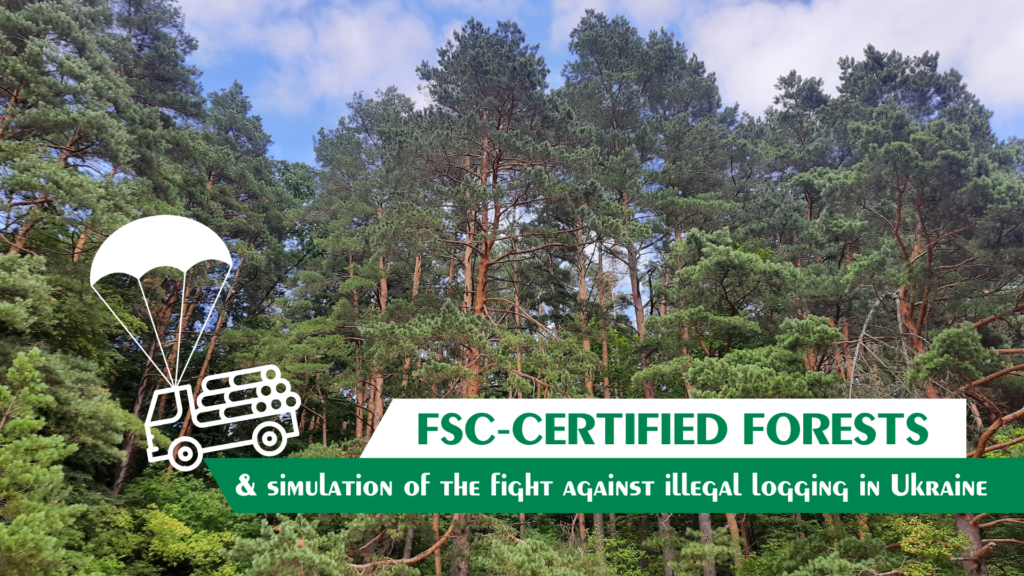At the end of July, the FSC global website published the article “10 steps to reduce illegal logging in Ukraine”, which reflects the FSC’s typical position on reducing illegal logging. A position in which an important role is assigned to the application of modern technologies and maximum cooperation of interested parties.
In the conditions that have developed in the forest sector of Ukraine, this is quite enough to create good images for foreign consumers of timber products and reporting on the work done. But it is by no means enough to reduce the amount of illegal and ecologically destructive felling and transition to sustainable forestry.
Thus, paragraph 9 of this article states that the new legislative wording prohibits all felling during the “quiet period”, not just sanitary felling. However, it was not clarified that the ban does not apply to all forests, but only to an approved list of categories, for example, in the nature reserve fund, coastal protection forests, etc. – Part 5, Article 39 of the Law of Ukraine “On Animal World”. And also omitted is the fact that in the conditions of martial law, these innovations did not begin to work. Although against the background of the decline of the Ukrainian economy, the expediency of felling in the quiet season in areas important for the preservation of biodiversity is questionable.
In the paragraph 8, it is mentioned that FSC Ukraine has initiated a series of round tables called “Forest Dialogues”, the purpose of which is to establish a dialogue between various interested parties in the forest sector.
However, it is not clear how exactly the results of such dialogues between interested parties are used. Thus, representatives of the Ukrainian office of the FSC did not participate in the public discussion of the draft Cabinet Resolution “On approving the Rules for felling in the forests of Ukraine, amending the Procedure for the special use of forest resources and recognizing certain resolutions of the Cabinet of Ministers of Ukraine as having lost their validity” and the draft Cabinet Resolution “On the implementation of an experimental project regarding the issuance of a special permit for the use of forest resources (logging ticket) and a certificate of origin of timber and lumber made from them”, which will determine the specifics of forestry in Ukraine for many years to come. And the public discussion of these normative legal acts is the best chance to promote and introduce the principles of ecologically responsible (sustainable) forestry. In particular, taking into account the proposals of the environmental community would allow to implement in practice the norms of the standard relating to the use of non-continuous logging systems, the fight against invasive species, the preservation of biodiversity and soils during logging and trawling, the conservation of natural resources, the transparency and publicity of the issuance of logging tickets.
Because if the national legislation does not meet the relevant standards, then no amount of training will force forestries to comply with these requirements of the standard, and moreover, the very requirements of the legislation are used by auditors as an argument for non-compliance with the requirements of the standard by forest farms.
Ignoring public discussion means effectively abdicating responsibility for reforming the forestry industry of Ukraine in the medium term and the actual implementation of the requirements of the standard of sustainable forestry management in practice.
Which is not surprising – the long-term experience of EPL shows that FSC in Ukraine does not contribute to the real preservation of forests, but is just another mechanism of greenwashing.


